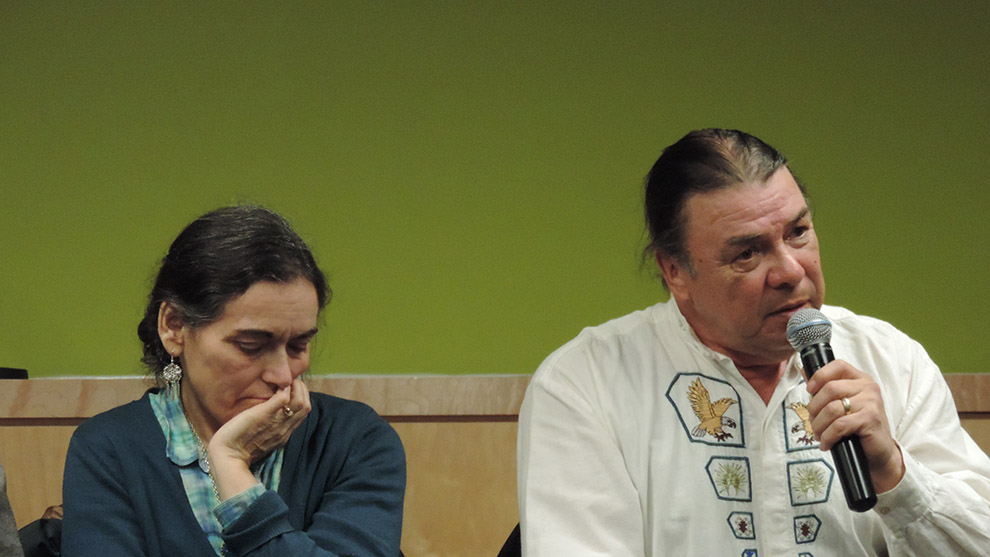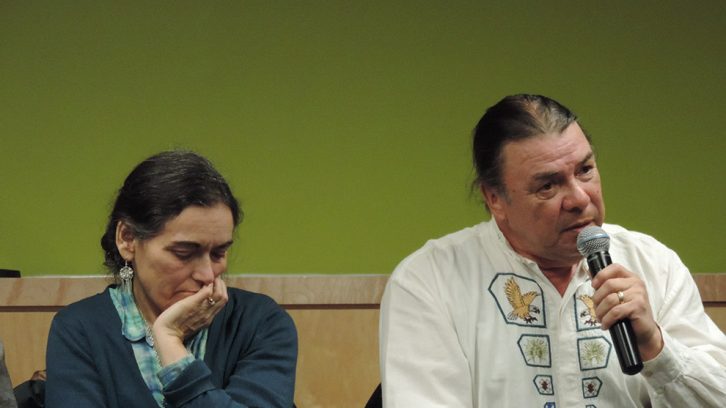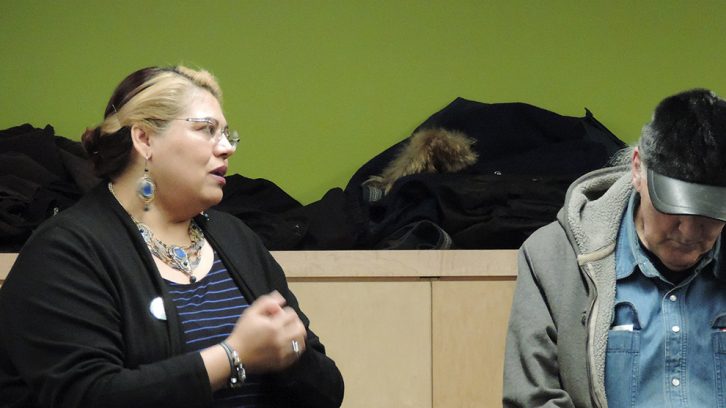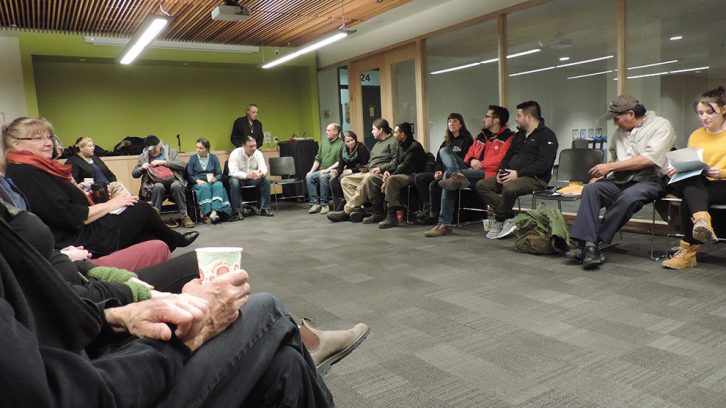Reconciliation
‘Love and understanding’: Dalhousie hosts first TRC cafe
Truth and Reconciliation Café brings together people for discussion about community building

caption
Danny Paul (right) says he is frustrated by the lack of community consultation from government and chiefs.
caption
Danny Paul (right) calls for more community consultation.Recent events have been making more people think deeper of what truth and reconciliation means for them and in moving forward.
In a meeting room in the Dalhousie Student Union Building on Tuesday, over 30 people talked about how to better relationships between Indigenous and non-Indigenous people. The Truth and Reconciliation Cafe, co-hosted by the Nova Scotia Public Interest Research Group and The Red Bear Healing Home Society, was a first for Dalhousie.
At the session, Manido Muckwa Ogitchida, soft spoken, said he turned to alcohol after a court appearance where a Crown attorney covered his mic saying “you know why we signed those treaties? Because we didn’t think 250 years later you’d be here to take us up on it.”
“Reconcile that,” he said to those gathered. Related stories
The audience included people from all backgrounds and communities, including students, elders and professionals.
Both Rana Zaman and Michelle Paul said they were unhappy with the divisiveness between like-minded community members and the escalating anger expressed largely online since the Women’s March and Cornwallis statue removal.

caption
Rana Zaman co-founded United for One Association, a Muslim group that helps refugees of all religions and races.Michelle Paul believes her role in reconciliation is about being a connector that helps build bridges.
“That division, I see hurt people, I see it hurt you,” said Paul to Zaman. “What needs to be cultivated is that love and understanding.”
For Dylan Letendre, truth is about honesty.
“We can’t be honest with each other if we can’t be honest with ourselves and what we are bringing to the table,” he told the group.
“If you haven’t gone deep and engage in the hardest relationship, which is with yourself, then I would be just spinning my wheels.”
Danny Paul of Membertou said Canada cannot reconcile unless Canadians acknowledge that what has been taught in schools has not been the whole truth.
He gives an analogy to help describe what it feels like when people tell him to “just get over it” and praise people like Cornwallis.
“I would like to sit with the Jewish people and tell them that Hitler was great,” he said sarcastically. “He brought the world together. He gave us the Volkswagen.”
After seven years, in June 2015, the Truth and Reconciliation Commission of Canada released its findings. It highlighted intergenerational trauma experienced by residential school survivors including physical, psychological and sexual abuse, and neglect. The supplementary 94 Calls to Action, span towards different sectors of Canadian society, all focusing on repairing the legacy of residential schools and advancing these relations.
Danny Paul finds it important to challenge any belief that Indigenous people were “stupid people” pre-European contact. Using references of the descriptive Mi’kmaq language, he said Indigenous groups across the land had to have an excellent working knowledge in oceanography, meteorology, astronomy, geography where they lived for thousands of years. He said knowledge continues to be documented through oral history.
He said if Dalhousie president Richard Florizone would say “unceded and unsurrendered” it helps recognize the negotiated and non-negotiated lands. He also believes that having the Cornwallis statue in a museum will help people get the whole story.

caption
The TRC Cafe was held in the Dalhousie University Student Union Building Tuesday night.Elder Billy Lewis stressed that incorporating the Calls to Action into the lives of all Canadians is an institutional and individual responsibility. He also said a discussion around truth and reconciliation in Canada cannot be done without considering the United Nations Declaration on the Rights of Indigenous Peoples.
“If you don’t see Indigenous rights in the global context, then you get caught up … and divided among each other,” he said.
Jessica Ali, a social worker at Mi’kmaq Family and Children Services of Nova Scotia, said she came to the cafe to better understand and help her clients. While she isn’t Indigenous, she thinks it is very important to learn the history, language and culture of the community she serves.
“What the children and their parents have gone through, it’s another level of trauma and a devastating history that has created these problems moving forward,” she said in an interview. “They need that recognition so they can be supported and start to heal.”
About the author

Karli Zschogner
Karli Zschogner is part Nova Scotian and recently moved to Halifax for Journalism at the University of King's College. After her Bachelors in...
